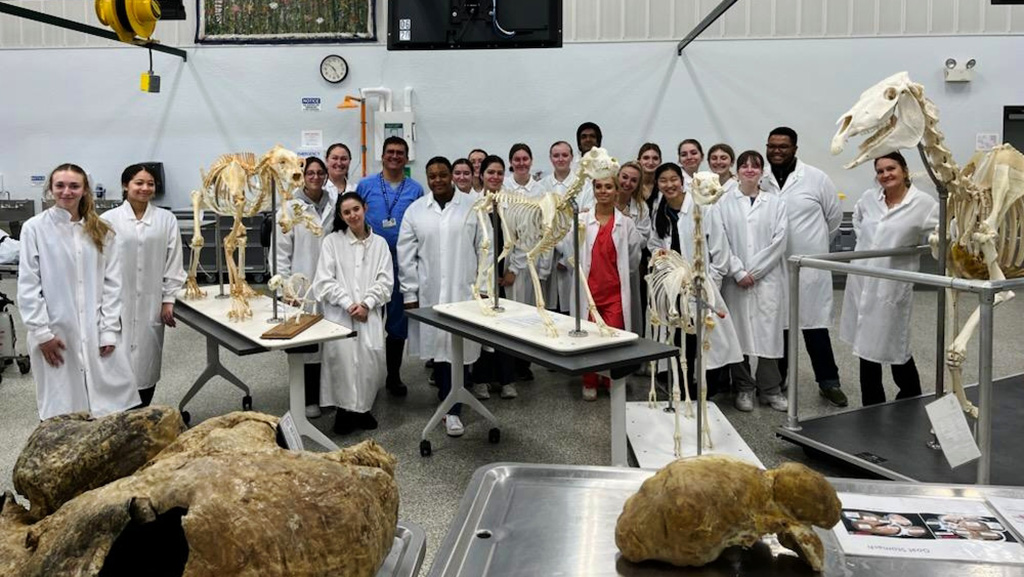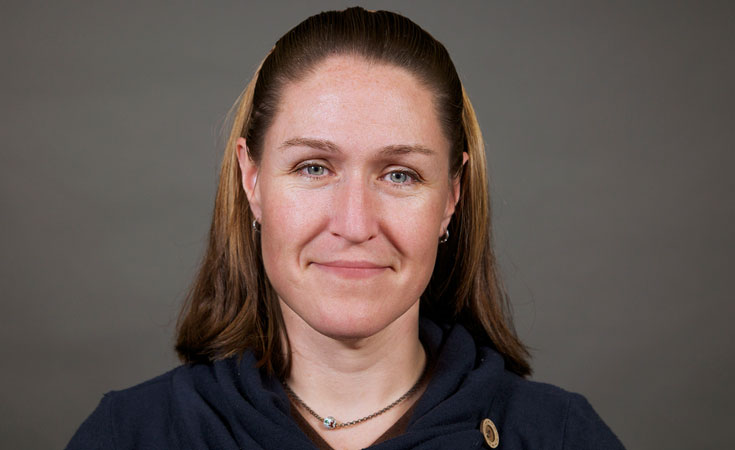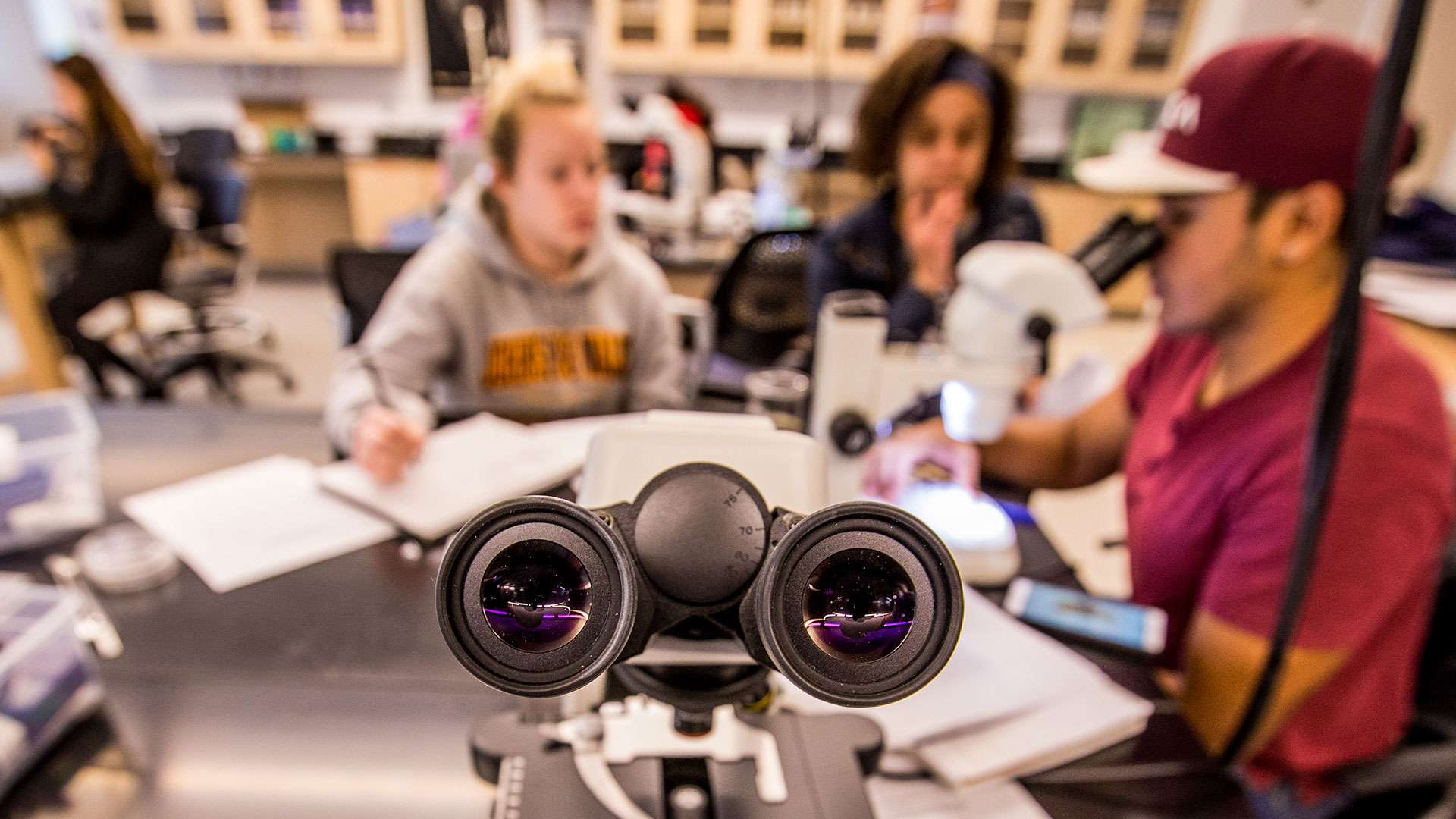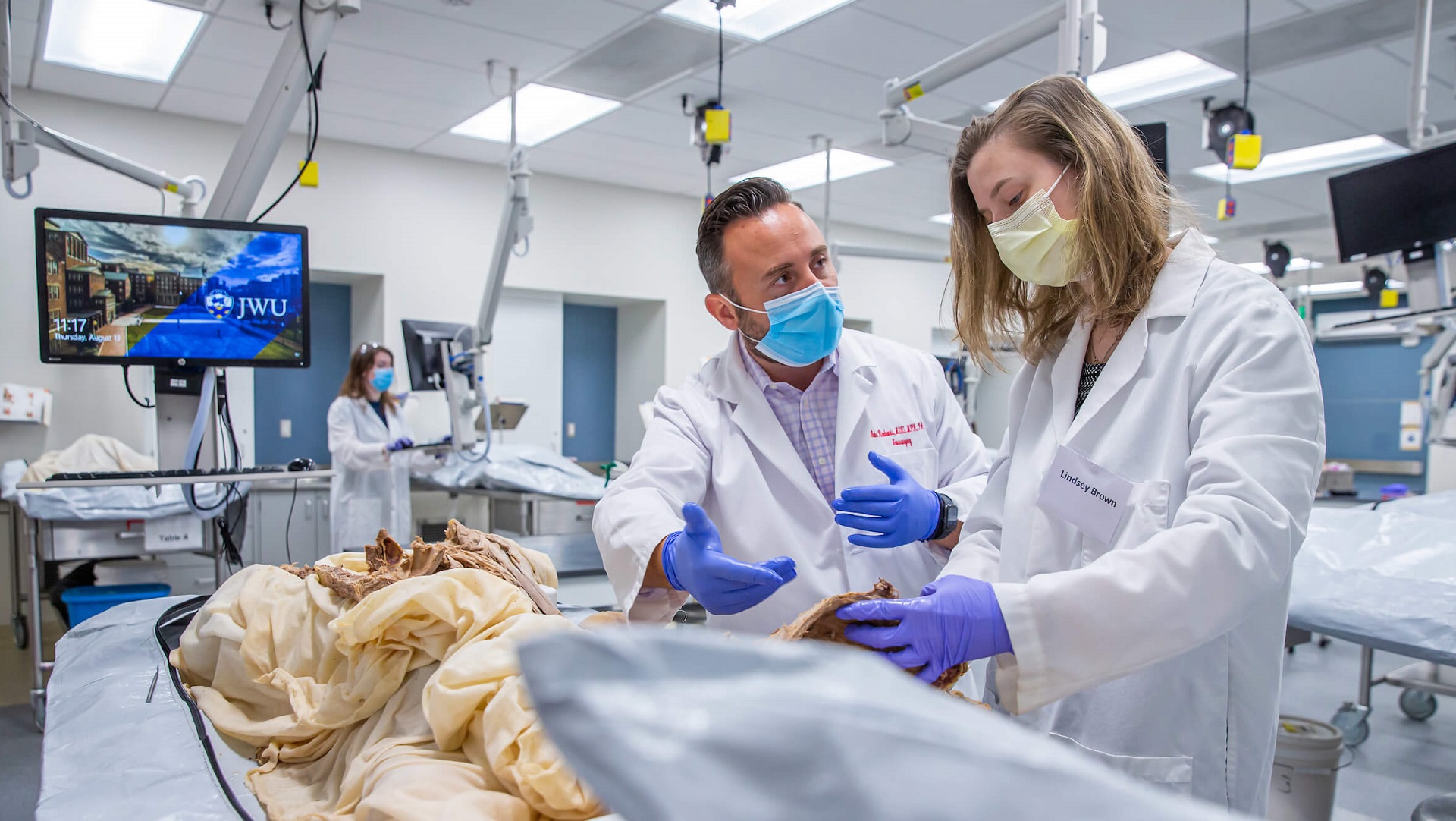Bachelor of Science
Animal Science
Animals are essential to the way we live.
Whether it’s the livestock who feed our communities, therapy animals who help humans in need or family pets that bring joy to a household — we need animals and experienced people to care for them.
In the Animal Science program, you will apply anatomy, chemistry, nutrition, genetics and more to the study of animal management, breeding, behavior and welfare for a variety of species. You’ll gain hands-on experience with animals to hone your skills in handling, health maintenance, equipment usage and breeding. You can complete a general course of study or choose one of two specializations:
Pre-Veterinary Studies Specialization
This specialization offers a suite of courses that will qualify you to pursue a Doctor of Veterinary Medicine degree. You’ll complete major prerequisite course requirements for application to American Veterinary Medical Association-accredited veterinary schools within the United States as well as other animal and science-related graduate studies programs.
Equine Science Specialization
This specialization honors our legacy of excellence in equine education while focusing on the science that impacts how to select, care for and manage horses involved in all aspects of the equine industry.
Request Information

JWU Visits Tufts University
Animal Science students taking the Domestic Animal Anatomy and Physiology Lab course recently visited Tufts University’s Cummings School of Veterinary Medicine to participate in laboratory rotations, including a Small & Large Animal Anatomy lab and Wildlife Anatomy lab.
Experiential Education
To study Animal Science effectively, you need to be able to work with real animals. Thanks to the partnerships we have developed with local farms, stables and research facilities, you’ll be able to handle and care for a variety of species in real settings as part of your coursework. This program is also designed to prepare you for higher-earning career outcomes in the field of animal science.
In this program, you will:
- Work with real animals at our partner research facilities and farms.
- Complete courses that are required to apply to accredited veterinarian schools (if you select the pre-veterinary specialization).
- Learn more about organic farming and sustainable practices.
- Have opportunities to travel on faculty-led study trips.
The Biology Lab
In the Biology Lab, Animal Science students learn the fundamentals of biology and examine different animals through dissection and microscopic study of organisms.
Our Industry Partners:
We have partnered with numerous farms and facilities so students can learn in real settings. Our industry partners include:
- Roger Williams Park Zoo
- Mystic Aquarium
- Wrights Dairy Farm
- Tufts University Cummings School of Veterinary Medicine
- Brown University Research Facility
Sample Courses
- Domestic Animal Anatomy & Physiology
- Principles of Animal Nutrition
- Principles of Animal Behavior & Training
- Animal Welfare, Health & Wellness
- Animal Disease & Preventative Health
- Perspectives in Animal-Assisted Interventions
In addition to classes, free elective credit can be applied to a number of options such as internships, minors or study abroad. You are encouraged to contact an advisor before scheduling free elective credits.
Career Possibilities
- Animal Biotechnologist
- Animal Nutritionist
- Animal Product Sales Rep
- Laboratory Animal Technician
- Wildlife, Marine or Zoo Biologist
- Animal Geneticist
- Veterinarian
Some professions may require additional study, background checks, certifications, licenses, exams and/or experience as required qualifications for employment. Students are responsible for verifying that they can meet the employment requirements of potential employers.
Featured Faculty
Our professors and instructors are dedicated to the success of our students. Learn more about our expert faculty members.

Associate Dean
Jackie Bowser, D.V.M., Ph.D., DACVIM-LA, is board certified in large animal internal medicine and continues to practice veterinary medicine.

Assistant Professor
Holland’s focus at JWU includes launching a student-focused research program and studying domestication traits and animal welfare in a clinical environment.

Associate Professor
Taylor has been actively involved in the equine industry for 30-plus years. She is a United States Dressage Federation (USDF) “L” Graduate with distinction for judge training and is a certified riding instructor through the USDF.
Related Programs
Visit JWU
Explore where you’ll live, learn, and enjoy all campus has to offer.
Schedule an In-Person Tour

